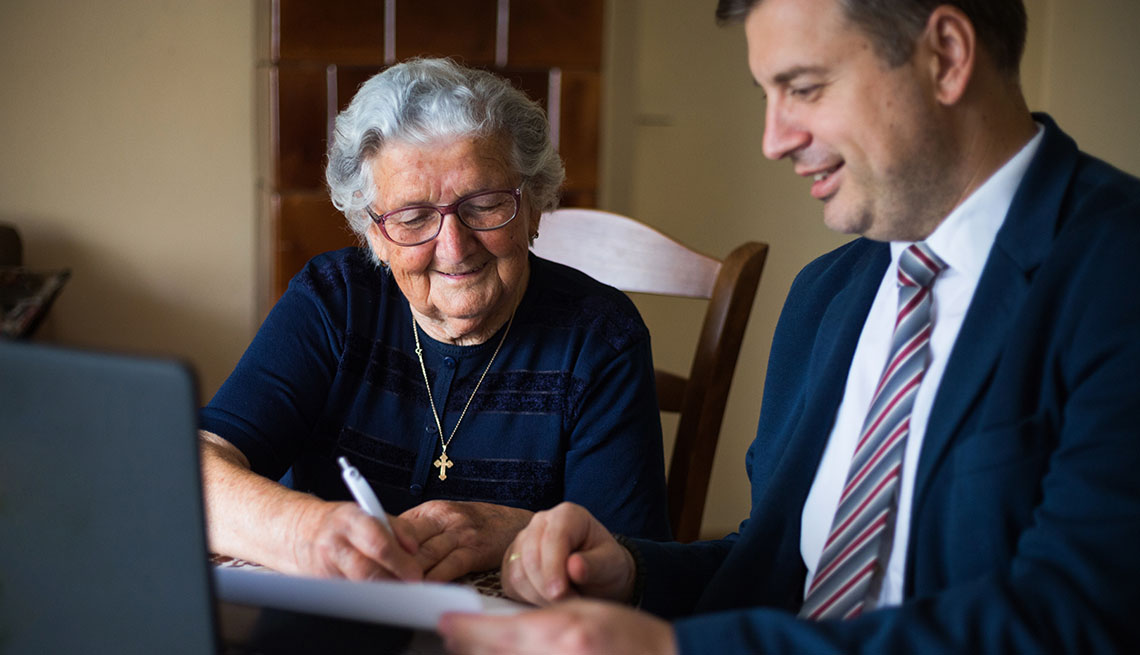AARP Hearing Center
Financial exploitation comes in many forms, and older adults are often the victims.
Picture this: An isolated adult’s friendly neighbor offers to help with household chores and bills. She runs errands and does the shopping, perhaps borrowing a credit card to go to the store. She has extra house keys made because it will be helpful in case of an emergency. The neighbor makes sure that bills are paid — but needs access to the checkbook to do it. Meanwhile, the same friendly neighbor is using that “borrowed” credit card to do her own shopping, and writing checks for her dental work and cellphone bill out of the checkbook. She has added her name to bank accounts and even taken the victim to an attorney to draw up new legal documents — documents that will leave a significant inheritance to her, of course.
Romance scams are on the rise, too. Older, lonely or heartbroken adults are common targets. In Florida in 2020, $40.1 million was stolen from victims who fell prey to a crime ring or bad actor posing as a potential suitor. Some people lose their whole life savings in a matter of months.
Myriad other financial crimes are carried out by fraudsters — phony investment scams, phone and gift card scams, lottery scams, Medicare and Social Security scams and more. There’s no limit on how creative those who wish to steal can be.
Financial exploitation by a family member
Sometimes, the exploitation comes from those closest to us. Family, friends and caregivers are not immune from skimming a little money here or there for their own purchases, using their care partner’s assets irresponsibly, manipulating their estate plan or just brazenly stealing large sums and thinking no one will notice. More often than not, if the victim knows the exploiter, it is a family member.
We’re not talking about small sums of money in most cases. The average amount lost per victim is $34,000. When a person is acting as a fiduciary (this means they use a legal document, like a power of attorney or trust, to access someone’s finances), the number skyrockets to $83,000. The older the victim, the greater the average amount of stolen assets.








































































